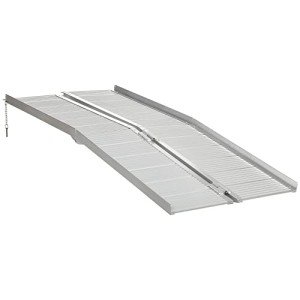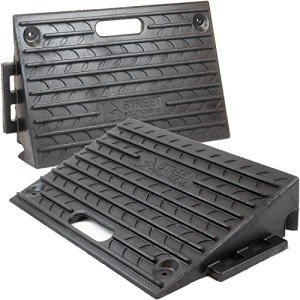
As society approach inclusivity, the requirement for accessible home has ended up being more pronounced. For individuals who depend on wheelchairs, removable ramps act as important tools to browse various environments. This thorough guide explores the significance of removable ramps, their advantages, types, and frequently asked questions, all provided with clearness to ensure that anybody, regardless of their familiarity with the subject, can understand their importance.

Removable ramps are portable, lightweight structures developed to help wheelchair users in getting rid of challenges such as stairs, curbs, and doorways. Unlike permanent ramps, these can be taken down and transported quickly, making them perfect for temporary usage in homes, public places, or occasions.
| Function | Description |
|---|---|
| Product | Often made from aluminum, plastic, or wood, making sure toughness while being lightweight. |
| Mobility | Easy to move and store, making them perfect for various usages and locations. |
| Adjustability | Some models can be changed in height or length to accommodate different barriers. |
| Weight Capacity | The majority of ramps can support weights varying from 300 to 800 pounds, accommodating a large range of wheelchairs and users. |
The benefits of removable wheelchair ramps extend far beyond mere accessibility. Here are several key benefits:
Flexibility: Removable ramps can be utilized in numerous areas, whether it be at home, work, or during getaways.
Affordable: Investing in removable ramps can be cheaper than constructing irreversible ramps, particularly for occupants who can not modify their homes.
Security: They offer a safe service for wheelchair users to browse unequal surface areas, minimizing the danger of accidents or falls.
Variety of Options: Available in numerous sizes, weights, and products, enabling users to discover the perfect fit for their needs.
Storage: When not in usage, removable ramps can be easily kept, maximizing space.
Here's a breakdown of the most common types of removable ramps readily available:
| Type | Description | Suitable Use Case |
|---|---|---|
| Folding Ramps | Compact, flexible ramps that can be folded for storage. | Perfect for cars, home use, and travel. |
| Telescoping Ramps | Adjustable ramps that can be extended or shortened. | Ideal for varying heights and limits. |
| Strong Ramps | Non-folding, sturdy ramps that provide a continuous surface area. | Best for irreversible setups in temporary environments. |
| Limit Ramps | Short, often lightweight ramps designed for doorways. | Perfect for navigating curbs or doorsteps. |
When choosing a removable ramp, several elements ought to be considered, consisting of:
Weight Capacity: Ensure the ramp can support both the user and their wheelchair.
Length and Width: Measure the height of the step or limit and choose a ramp that provides a suitable slope.
Product: Decide between options like aluminum for portability or a more strong product for stability.
Portability: Evaluate how far you will need to carry the ramp and choose one that fits your needs.
Storage: Consider the area readily available for saving the ramp when not in use.
When buying removable ramps, safety needs to be a leading priority. Features to consider consist of:
Non-Slip Surface: Ensures traction for wheelchair wheels during usage, especially in damp conditions.
Side Guards: Prevents the wheelchair from rolling off the edge.
Sturdiness: Look for products created to withstand outside conditions if needed.
Although removable ramps are developed for ease of usage, some may need very little assembly. Constantly examine the producer's guidelines before use.
1. Are removable ramps pricey?
Expenses can differ significantly depending on the size, product, and brand. Removable ramps may range from ₤ 100 to ₤ 700, making them a budget-friendly choice compared to customized, long-term ramps.
2. How do I maintain removable ramps?
Keep ramps clean and complimentary from debris. Regularly check for signs of wear or damage, specifically if utilized outdoors, given that weather condition conditions can impact integrity.
3. Can a single person set up a removable ramp?
Yes, many removable ramps are lightweight and created for simple setup by a single individual. Nevertheless, it is advisable to have assistance when lifting heavier models.
4. Will a removable ramp work for my wheelchair?
A lot of removable Ramps For Wheelchair work with standard wheelchairs and scooters. Always validate the weight capacity and measurements to ensure compatibility.
5. Are there regulations regarding ramps in public areas?
Yes, the Americans with Disabilities Act (ADA) details specific standards for accessibility, including ramp requirements. If you prepare to utilize ramps in public locations, guarantee they comply with regional regulations.
Removable ramps for wheelchairs are not simply practical tools; they symbolize a society making every effort for ease of access and inclusivity. From enhancing mobility to supplying security and convenience, the value of these ramps can not be overstated. As the market continues to develop, users will discover a lot more ingenious options tailored to their needs, making sure that everyone can navigate their world with confidence and ease.
When picking a removable ramp, keep in mind to examine specific requirements and speak with guidelines to make the most of security and performance. The best ramp can open doors-- literally and figuratively-- allowing users to experience liberty and independence in their every day lives.
No Data Found!
